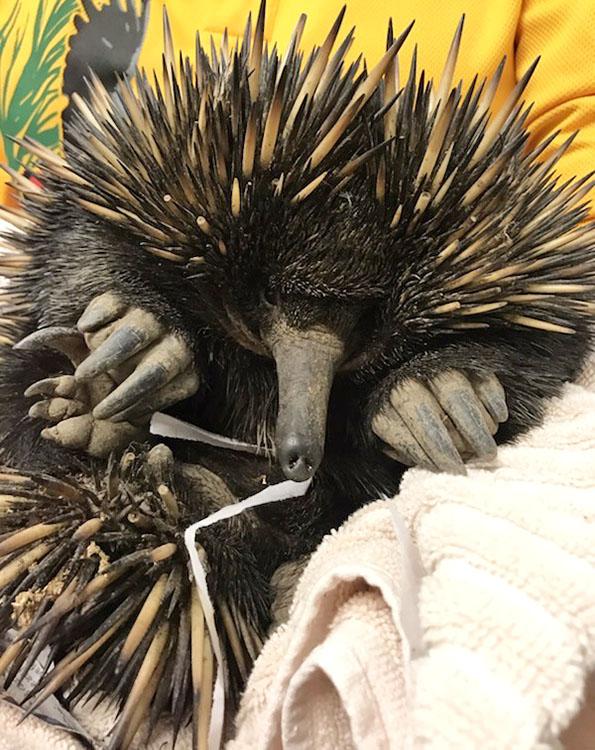Help Keep Puggles & Their Parents Safe …
In the cooler weather, our Echidnas are out more during the day – not just at night. Please help keep them safe.
These unique creatures are only found in Australia and New Guinea. They are an exclusive group of mammals, along with the Platypus, which lay an egg. This group are called monotremes. The female Echidna has a shallow pouch, in which the egg is kept for around ten days before the baby (Puggle) hatches.
The baby stays in the pouch and during this time the mother digs a burrow. Once the baby grows its quills (spikes) it will be left in the burrow while mum goes out foraging for food. This is one reason why we must never relocate an Echidna, as it may have a baby in a burrow waiting for the mother to return to feed it. The Puggle relies on suckling milk from inside the pouch of its mum for several months.
When the Puggle reaches 200 days, the mother will open the burrow to let the baby out to forage on its own.

Threats To Echidnas:
Habitat Loss – they rely on vegetation in the understory such as fallen logs, old wood where termites can be found and areas where they can dig for ants and insects.
Dog Attack – even though Echidnas have strong quills for protection and the ability to burrow down into soft earth, their underbelly area and beak (nose) is very soft and sensitive. If a dog has harassed, rolled the Echidna over or even if it has been in close contact with a dog, we always like to get them checked by a vet.
Vehicle Strike – if the Echidna has been run over or clipped by a car, it will need a check-up. Often their beaks are damaged and will need an Xray, preferably at a wildlife hospital. The beak is where they feed and breathe through, so any damage to that area may be life threatening.
If you find one injured, call for help immediately and keep an eye on it so a rescuer can easily find it.
DO NOT EVER PUT IN YOUR VEHICLE as they are extremely difficult to extract if they burrow under the dash or the seats.
For Help With Wildlife, Please Call:
RSPCA 1300 ANIMAL
QLD Koala Society 0419 709 639
Wildcare 5527 2444
By Sherryn Fraser
Registered Wildlife Rescuer, Rehabilitator and Vet Nurse